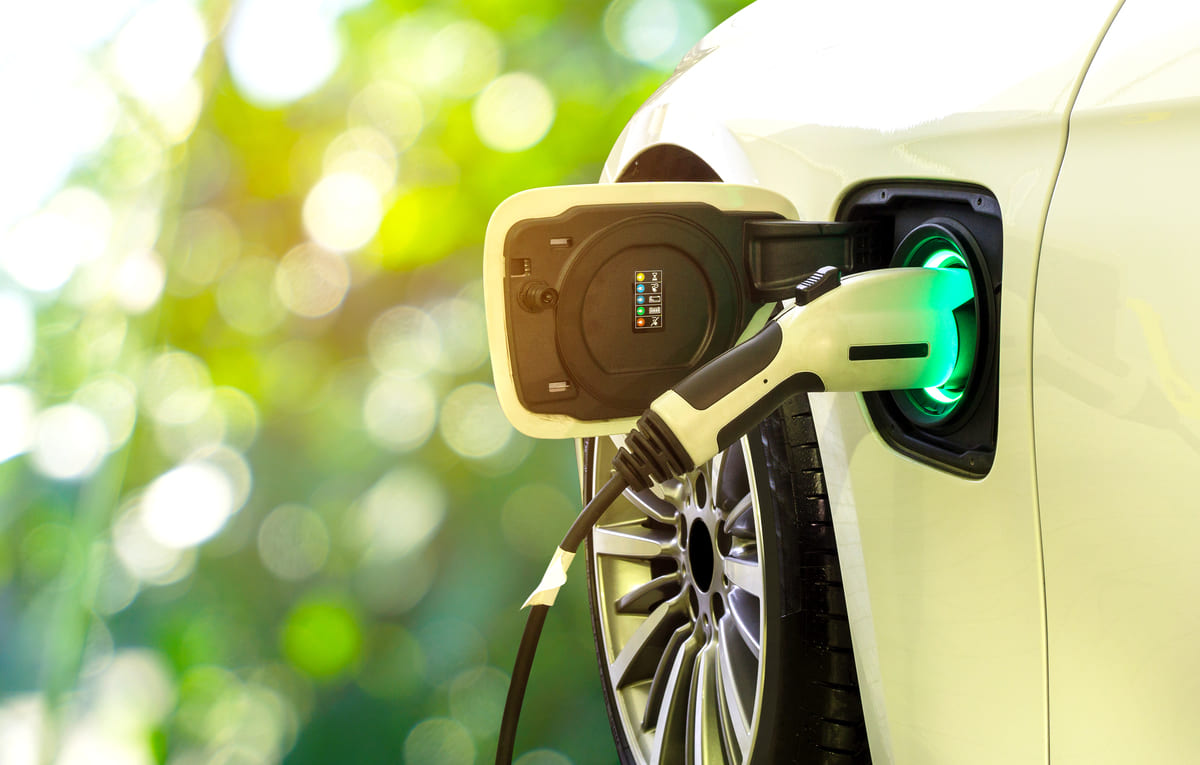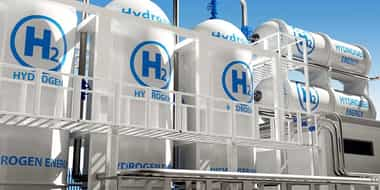
Aug 29, 2024
Blog Energy & Sustainability Electric Vehicles and Fuel Cell Vehicles: Shaping the Future of Transportation
Fuel cell vehicles (FCVs) and electric vehicles (EVs) are driving the global automobile industry's transition to a more sustainable future. As environmental concerns increase and countries worldwide work to impose stronger emissions laws, there has never been more demand for cleaner, greener transportation options. This change aims to reshape the future of transportation, not just technology.

The global market for electric vehicles and fuel cell vehicles was valued at $655.9 billion in 2023. The market is expected to grow from $758.0 billion in 2024 to $1.8 trillion by 2029 at a compound annual growth rate (CAGR) of 18.6% from 2024 to 2029.
The Rise of Electric Vehicles (EVs):
The last ten years have seen a dramatic growth in the popularity of electric vehicles, largely due to favorable government laws, growing consumer awareness of environmental issues, and breakthroughs in battery technology. Organizations like China, Norway, and the US are leading this shift, providing tax advantages, subsidies, and infrastructure investments for charging stations to promote the use of electric vehicles.
The global EV market is expected to continue its rapid growth, with projections indicating that EV sales could surpass those of traditional internal combustion engine vehicles in some regions by the early 2030s. Several key factors fuel this growth:
Leading Players: EV manufacturers like Tesla, Nissan, and Chevrolet are leading the way, but newcomers like Rivian and Lucid Motors are also making big progress. Consumers gain from the intense competition's push for innovation and cost-cutting measures.
The global market for electric vehicles and fuel cell vehicles was valued at $655.9 billion in 2023. The market is expected to grow from $758.0 billion in 2024 to $1.8 trillion by 2029, at a compound annual growth rate (CAGR) of 18.6% from 2024 to 2029.
While electric cars garner the most attention, fuel cell vehicles are equally important in shifting to environmentally friendly transportation. FCVs produce only water vapor as a byproduct when they use hydrogen gas to power an electric motor. This technology is a promising alternative for heavy-duty vehicles and long-distance transportation since it has several benefits, especially regarding refilling time and driving range.
Although the worldwide market for FCVs is still in its early phases, it is growing as more nations and businesses invest in hydrogen infrastructure. Germany, South Korea, Japan, and South Africa are in charge of constructing hydrogen filling stations and integrating hydrogen-powered automobiles into transportation networks.
Key Players: Leading the way in developing FCVs are companies like Toyota, Hyundai, and Honda; vehicles like the Hyundai Nexo and Toyota Mirai are already for sale. Further encouraging the use of FCVs is the fact that numerous governments are investing in hydrogen infrastructure.
Even though fuel cells and electric vehicles have made great strides, several obstacles remain. The lack of infrastructure for EV charging, especially in rural regions, hinders their broad adoption. A significant obstacle for FCVs is the absence of an extensive hydrogen refueling network.
These difficulties do, yet, also offer chances for development and innovation. To overcome these challenges and realize the full promise of these green technologies, improvements in battery and fuel cell technology, the development of infrastructure for hydrogen refueling and charging, and ongoing government backing are essential.
As the globe moves toward more environmentally friendly forms of transportation, the markets for electric and fuel-cell vehicles are expected to develop exponentially. FCVs provide a supplementary solution, especially for situations where a greater range and faster recharging are crucial, even though EVs are now leading the way. These technologies are working together to move the automobile sector toward a cleaner, greener future that will greatly impact the economy, the environment, and society. Governments, businesses, and consumers must continue to work together to accelerate the green revolution and create a more sustainable future.
Consider becoming a member of the BCC Research library and gain access to our full catalog of market research reports in your industry. Not seeing what you are looking for? We offer custom solutions too, including our new product line: Custom Intelligence Services.
Contact us today to find out more.

Sandeep is a Senior Executive in Marketing Operations at BCC Research, proficiently serving as a graphic designer and content creative specialist. His expertise extends to AutoCAD and Revit, and he has made valuable contributions to the event industry with his design skills.

Electrical switches—devices that control the flow of electricity—are the backbon...

As the world accelerates toward net-zero emissions, hydrogen, and ammonia have e...

Hydrogen technology is widely used across industries like glass, fertilizer, met...

We are your trusted research partner, providing actionable insights and custom consulting across life sciences, advanced materials, and technology. Allow BCC Research to nurture your smartest business decisions today, tomorrow, and beyond.
Contact UsBCC Research provides objective, unbiased measurement and assessment of market opportunities with detailed market research reports. Our experienced industry analysts assess growth opportunities, market sizing, technologies, applications, supply chains and companies with the singular goal of helping you make informed business decisions, free of noise and hype.